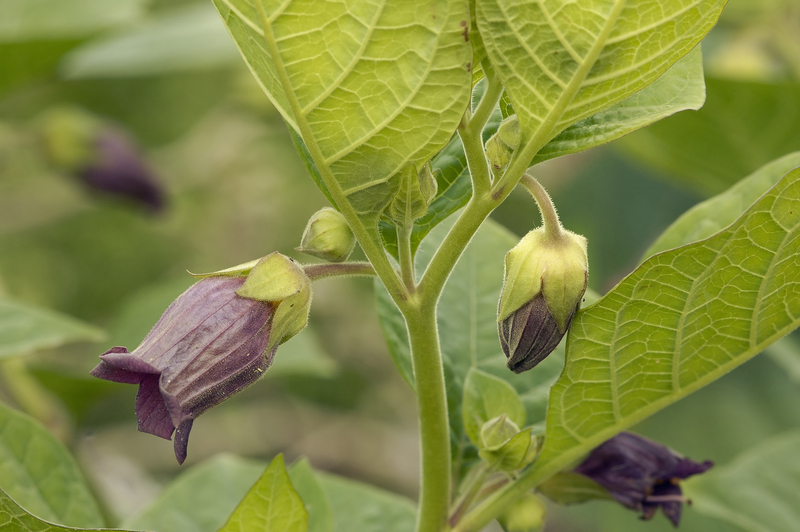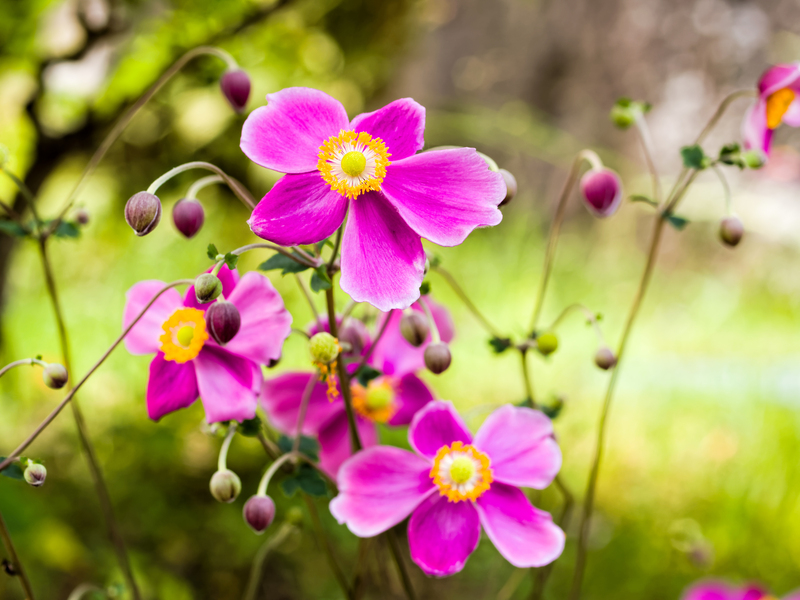9 Key Gardening Tips to Help Beginners Flourish and Bloom
Posted on 30/05/2025
9 Key Gardening Tips to Help Beginners Flourish and Bloom
Embarking on a gardening journey can feel overwhelming for beginners, but fear not! Equipped with the right advice, anyone can nurture vibrant blooms and a thriving garden oasis. Whether you have a spacious backyard or a small balcony, these essential gardening tips for beginners will set you on the path to success. Let's dig in to discover the secrets to helping your garden truly flourish and bloom.
Why Start Gardening?
Gardening offers more than just beautiful flowers and fresh veggies. It connects you with nature, supports pollinators, and can have profound mental health benefits. For first-time gardeners, every new leaf and blossom is a rewarding milestone. Get ready to watch your green thumb grow!

1. Choose the Right Location for Your Garden
One of the most critical gardening tips for beginners is selecting the ideal spot for your garden. Plants need a balance of sunlight, protection from wind, and accessible water.
- Assess sunlight: Most vegetable and flowering plants require at least 6 hours of direct sunlight daily. Observe your space to determine the sunniest spot.
- Consider convenience: The nearer your garden is to your house, the more likely you'll nurture it regularly.
- Ensure good drainage: Avoid low-lying areas where water collects, as excessive moisture can damage roots.
Pro Tip:
Use a garden planner app or notebook to track sunlight and shade throughout the day before planting.
2. Test and Improve Your Soil
Your garden is only as good as its soil. Healthy soil is the foundation for flourishing plants. Here's how to get started:
- Test soil quality: Purchase an inexpensive soil test kit from a local garden center. These kits tell you about pH levels and nutrient content.
- Amend as needed: If your soil lacks nutrients, add organic matter such as compost, manure, or peat moss to boost it.
- Improve drainage: Mix in sand or perlite if your soil is too heavy or clay-like.
Tip: Healthy soil encourages deep root growth, which helps your garden bloom and thrive!
3. Select Beginner-Friendly Plants
Not all plants have the same needs. As a beginner, choose varieties known for being easy to grow and resilient. Here are some great options:
- Vegetables: Lettuce, radishes, carrots, and green beans.
- Herbs: Basil, chives, mint (plant in containers as it spreads quickly), and parsley.
- Flowers: Marigolds, zinnias, sunflowers, and pansies.
Pro Tip: Read plant tags for care instructions and choose those that match your climate and sunlight conditions.
4. Master the Art of Watering
Proper watering is one of the most important gardening tips for beginners and a vital step for helping your garden flourish.
- Consistency is key: Water deeply and consistently. Shallow watering leads to weak roots.
- Morning is best: Water in the early morning to reduce evaporation and prevent fungal diseases.
- Know your plants: Some, like succulents, require less water, while others need more frequent hydration.
Fun Fact: Overwatering can harm plants as much as neglect. Feel the soil; if it's dry an inch down, it's time to water!
5. Mulch for Moisture and Weed Control
Mulching helps gardens bloom by maintaining moisture and suppressing weeds. Here's how to do it right:
- Choose the right mulch: Organic options like bark, wood chips, straw, or shredded leaves are ideal.
- Spread evenly: Apply 2-3 inches of mulch around your plants, keeping it away from stems to prevent rot.
- Benefit from insulation: Mulch stabilizes soil temperatures and adds nutrients as it breaks down.
Mulching is a game-changer for beginner gardeners aiming for healthy, blooming beds!
6. Feed Your Plants for Optimal Results
Just like people, plants need nourishment. Regular feeding encourages vigorous growth and abundant blooms.
- Use compost: Natural compost is an excellent all-purpose fertilizer that enriches soil and improves plant health.
- Try slow-release fertilizers: These provide a steady supply of nutrients over time.
- Read labels: Follow instructions on any fertilizers to avoid overfeeding, which can damage plants.
Did You Know? Plants need a balance of nitrogen, phosphorus, and potassium to truly flourish and bloom.
7. Prune & Pinch for Healthy Growth
Proper pruning and pinching helps beginners' gardens become lush and productive:
- Remove dead or yellowing leaves: This directs the plant's energy toward healthy growth.
- Pinch tips for bushiness: Pinching the tips of some plants, like basil or coleus, encourages fuller growth and more blooms.
- Shape your plants: Moderate pruning improves air circulation and prevents disease.
Gardener's Advice: Always use clean, sharp tools to avoid spreading infections.
8. Keep Pests and Diseases at Bay
Early detection and prevention is key for blooming success. Here's what every beginner gardener should know:
- Inspect regularly: Check plants for holes, discolored spots, or leaf curl.
- Encourage beneficial insects: Ladybugs, lacewings, and bees help manage pests and pollinate your garden.
- Opt for natural solutions: Use neem oil, insecticidal soap, or garden-safe remedies before resorting to chemicals.
Bonus Tip: Planting marigolds or nasturtiums can help repel common garden pests naturally.
9. Keep Learning and Have Patience
Gardening is a process, not a sprint. Even expert gardeners face setbacks, so remember:
- Observe and learn: Take notes on what works (and what doesn't).
- Don't get discouraged: Mistakes are part of learning and help you grow as a gardener.
- Celebrate progress: Watch for your first sprouts, blossoms, and harvests--they signify a flourishing journey!
Final Words: Every season offers new lessons and opportunities to help your garden bloom.

Frequently Asked Questions about Gardening for Beginners
How often should I water my garden?
Water needs vary based on plant type, soil, and weather. As a rule of thumb, water when the top inch of soil is dry. Early morning is the best time to water for optimal absorption.
What's the easiest flower to grow for beginners?
Marigolds, zinnias, and sunflowers are easy, beginner-friendly options that thrive in many climates and add vibrant, long-lasting blooms to your garden.
How do I stop weeds from taking over?
Regular mulching and hand-weeding are the best approaches. Keep your beds weed-free by removing weeds as soon as you spot them and applying a 2-3 inch mulch layer.
Conclusion: Flourish and Bloom with These Gardening Tips for Beginners
Becoming a successful gardener isn't about getting everything right the first time. With these 9 key gardening tips for beginners, you'll set strong roots for a vibrant, blooming garden. Remember to start small, be patient, and enjoy every step of your gardening adventure. Happy gardening!
- Pick the best garden spot
- Nourish your soil
- Select easy plants
- Water wisely
- Mulch and protect
- Feed and fertilize
- Prune and pinch
- Control pests naturally
- Embrace learning & patience
Armed with these secrets, you're now ready to watch your garden--and your confidence--truly flourish and bloom!
Latest Posts
Which Tools Every Outdoor Gardener Needs in Their Arsenal
Craft a Beautiful, Weed-Free Garden with These 3 Tips
Create an Enclave with 9 Hedges That Rapidly Grow for Privacy

